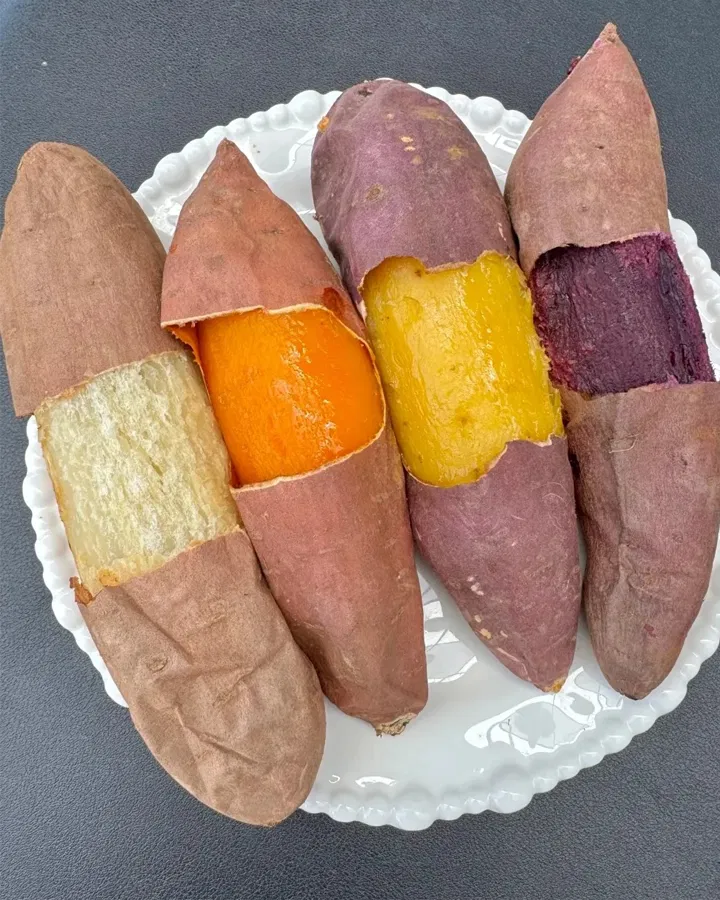
The use of natural ingredients like potatoes and ginger to help fade dark spots and improve skin tone is becoming increasingly popular, especially among those seeking gentle, affordable alternatives to chemical-based products.
Potatoes contain an enzyme called catecholase, which may aid in skin brightening, while ginger is rich in antioxidants and has anti-inflammatory benefits that can contribute to healthier-looking skin. For those interested in exploring natural skincare solutions, the following is an easy homemade mask recipe using these two ingredients.
What You’ll Need
- 1 small potato
- A 1-inch piece of fresh ginger
- (Optional) 1 teaspoon of lemon juice for added brightening effects
Steps to Prepare
1. Prep the Ingredients
Peel both the potato and ginger. Grate them finely to release their juices.
Using a clean cloth or fine mesh strainer, squeeze the grated ingredients over a bowl to collect the liquid.
2. Mix
Add lemon juice to the potato-ginger mixture if desired. Lemon juice contains vitamin C, which may help with pigmentation, but it can be harsh on sensitive skin, so consider skipping it if your skin is easily irritated.

How to Apply
Begin with clean skin—wash your face thoroughly to remove dirt or makeup.
Using your fingers or a cotton pad, apply the juice mixture directly to the dark spots. If your skin isn’t too sensitive, you can apply it across your entire face as a mask.
Let the mask sit for about 20 minutes. Monitor how your skin feels during this time, especially if you have sensitive skin.
Rinse Off and Moisturize
After 20 minutes, wash your face with lukewarm water and gently pat dry with a clean towel. Follow up with your favorite moisturizer to lock in hydration.
Additional Tips
Patch Test First: Always test a small amount on another part of your skin (like your wrist or behind the ear) to ensure there’s no adverse reaction.
How Often to Use: 2 to 3 times per week is generally safe. Monitor your skin and adjust the frequency if you experience irritation or dryness.
Wear Sunscreen: Natural lightening treatments can increase skin sensitivity to sunlight. Use a good SPF during the day to protect your skin.

What to Expect
Natural remedies like this one can show gradual improvement over time, especially when used consistently. However, results vary from person to person. For more persistent or deep pigmentation, professional advice from a dermatologist may be necessary.
Incorporating potato and ginger into your skincare routine can be a gentle and budget-friendly way to target dark spots. Just remember that natural treatments are part of a long-term routine rather than a quick fix, and patience is key to seeing noticeable results.
Don’t Eat Sweet Potatoes If You Ignore These 8 W-arnings

Sweet potatoes are a flavorful and nutrient-rich superfood loaded with vital vitamins, minerals, and antioxidants. While they offer numerous health benefits, there are a few key factors to consider before incorporating them into your diet. Here are eight important warnings to keep in mind when consuming sweet potatoes.
High Oxalate Content – Kidney Stone Risk
Sweet potatoes contain oxalates, which may contribute to kidney stone formation, particularly in individuals prone to developing them. If you have a history of kidney stones, consider limiting your intake or consulting a doctor before making sweet potatoes a regular part of your diet.
May Elevate Blood Sugar Levels
While sweet potatoes have a lower glycemic index than regular potatoes, they still contain carbohydrates that can cause blood sugar spikes. Diabetics and those monitoring their blood sugar should consume them in moderation and pair them with protein or healthy fats to help slow glucose absorption.
Possible Digestive Discomfort
Rich in fiber, sweet potatoes can support digestion but may also lead to bloating, gas, or diarrhea if consumed in excess. Those with sensitive stomachs should introduce them gradually to assess tolerance.
Interaction with Beta-Blockers

Individuals taking beta-blockers for heart conditions should be cautious with sweet potatoes, as their high potassium content may interfere with these medications and disrupt potassium balance. It’s best to consult a healthcare provider if you are on such medication.
Risk of Excess Vitamin A
Sweet potatoes are abundant in beta-carotene, which the body converts into vitamin A. While essential for health, excessive intake—especially when combined with vitamin A supplements—can lead to toxicity. Consuming them in moderation is advisable.
Potential Allergy Risk
Though uncommon, some individuals may experience an allergic reaction to sweet potatoes, with symptoms such as itching, swelling, or digestive discomfort. If you notice any unusual reactions, stop consuming them and consult a medical professional.
Possible Pesticide Exposure
Conventionally grown sweet potatoes may contain pesticide residues. To reduce exposure, choose organic varieties when possible or ensure they are thoroughly washed and peeled before cooking.
Dangers of Spoiled or Moldy Sweet Potatoes
Rotten or moldy sweet potatoes can produce harmful toxins that may cause food poisoning. Always check for signs of spoilage, such as an off-putting smell or visible mold, and discard any that appear unsafe to eat.




















